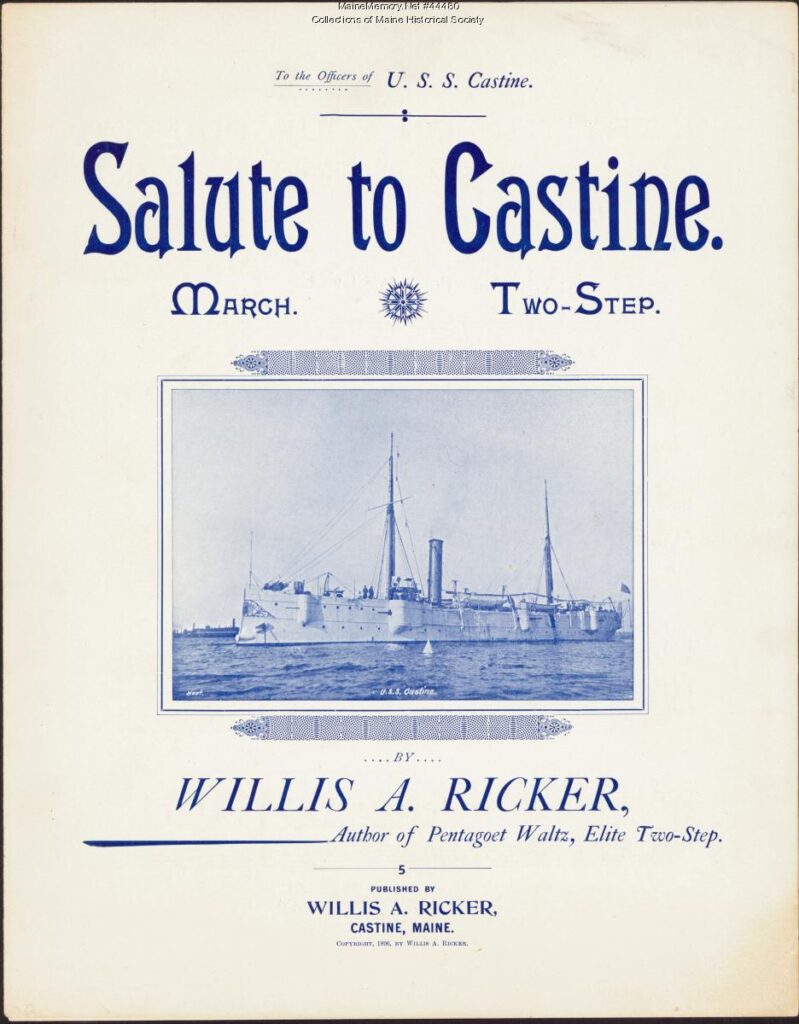Willis A. Ricker Compositions
As part of the library’s ongoing commitment to highlight its local history collection, we’ve asked local pianist Karen Froehly to perform local compositions from the archives. Our initial offering is Willis Ricker’s composition “Salute to Castine.’’
Willis Ricker (1873-1957) served on the board of selectmen in Castine and, in Augusta as a state representative and state senator. A graduate of the New England Conservatory, he ran a store in town, He played coronet in the Lawrence Town Band and wrote several pieces for the band as well as music for the piano including “Salute to Castine,’’ “Pentagoet Waltz’’ and “Elite Two-Step.’’ The front page of the sheet music for “Salute to Castine” bears the inscription “To the Officers of U. S. S. Castine.’’
Karen Froehly, originally from Maryland, is currently the music director and organist at the Unitarian Universalist Community of Castine and the Penobscot United Methodist Church. She holds bachelor’s degrees in Business Management and Visual and Performing Arts (Piano Performance) from the University of Maryland, a master’s degree in Liturgical Music from the Catholic University of America and a graduate certificate in liturgy from St. John’s University, Collegeville, Minnesota. Karen enjoys birdwatching with her husband, Mark, working on her many craft projects, gardening, cooking, reading, caring for her four cats, spending time with her two out-of-state sons and living in Penobscot, Maine.

Willis Ricker wrote “Salute to Castine,’’ to commemorate the visit to the town by the U.S.S. Castine in 1894. The Machias Class gunboat was built at the Bath Iron Works and launched in 1892. Commissioned in 1894, the vessel sailed directly to Castine, arriving on New Year’s Eve. During a ceremony at the Town Hall, J.W. Dresser presented a silver fruit dish to Thomas Perry, the vessel’s captain. That bowl is now part of the collection at the Castine Historical Society. Following the presentation, there was a celebratory dinner at the “new’’ Pentagoet, followed by a reception and ball at the town hall. The ship remained in Castine for two more days before heading out for patrol duty in the South Atlantic. With the exception of two years spent in drydock, the Castine remained in service through the first world war and was decommissioned in 1919.


